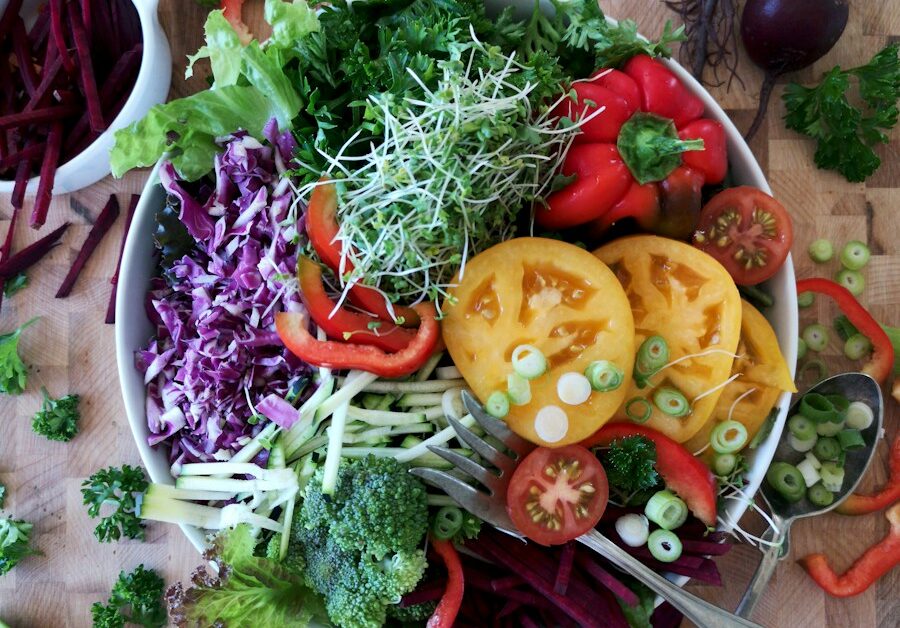Vegan mayo has become increasingly popular in recent years as more people adopt a plant-based diet or choose to reduce their consumption of animal products. Made from plant-based ingredients, vegan mayo offers a cruelty-free alternative to traditional mayonnaise. However, there is ongoing debate about whether vegan mayo is a healthy choice. In this article, we will explore the nutritional aspects of vegan mayo and discuss its potential health benefits and drawbacks.
What is vegan mayo?
Vegan mayo is a plant-based alternative to traditional mayonnaise, which is typically made with eggs and oil. Instead of eggs, vegan mayo uses plant-based ingredients such as soy milk, tofu, or aquafaba (the liquid from cooked chickpeas). These ingredients are emulsified with oil and other flavorings to create a creamy and tangy spread that resembles traditional mayo.
The nutritional profile of vegan mayo
When it comes to the nutritional profile, vegan mayo can vary depending on the brand and ingredients used. However, in general, vegan mayo tends to have a lower calorie and fat content compared to traditional mayo. Here are some key nutritional aspects to consider:
- Calories: Vegan mayo typically contains fewer calories than traditional mayo. While traditional mayo can have around 90-100 calories per tablespoon, vegan mayo usually ranges from 30-90 calories per tablespoon.
- Fat: Vegan mayo often has a lower fat content compared to traditional mayo. Traditional mayo can contain around 10-12 grams of fat per tablespoon, while vegan mayo may have 3-8 grams of fat per tablespoon.
- Protein: Vegan mayo made from soy or tofu can provide a small amount of protein, which is absent in traditional mayo.
- Cholesterol: Since vegan mayo is egg-free, it is cholesterol-free, unlike traditional mayo, which can be high in cholesterol due to the eggs used.
- Sodium: Both vegan mayo and traditional mayo can contain sodium, but the amount can vary depending on the brand. It is important to check the label for sodium content if you are watching your sodium intake.
Potential health benefits of vegan mayo
Vegan mayo offers several potential health benefits, especially for individuals following a plant-based diet or those with specific dietary restrictions. Some of the benefits include:
- Lower in saturated fat: Vegan mayo is typically lower in saturated fat compared to traditional mayo, which can be beneficial for heart health.
- Cholesterol-free: As mentioned earlier, vegan mayo does not contain cholesterol, making it a suitable option for individuals with high cholesterol levels or those following a cholesterol-lowering diet.
- Plant-based ingredients: Vegan mayo is made from plant-based ingredients, which means it is free from animal products and suitable for vegans and vegetarians.
- Allergen-friendly: Traditional mayo contains eggs, which can be problematic for individuals with egg allergies or those following an egg-free diet. Vegan mayo provides an alternative that is free from eggs and other common allergens.
Potential drawbacks of vegan mayo
While vegan mayo can offer some health benefits, it is important to consider potential drawbacks as well:
- Processed ingredients: Some vegan mayo brands may contain processed ingredients, additives, or preservatives. It is essential to read the ingredient list and choose brands that use minimal and recognizable ingredients.
- Higher sodium content: Vegan mayo can still contain sodium, and some brands may have a higher sodium content compared to traditional mayo. Monitoring sodium intake is important, especially for individuals with high blood pressure or other health conditions.
- Lower in essential nutrients: Vegan mayo may lack certain essential nutrients found in traditional mayo, such as vitamin K, vitamin E, and omega-3 fatty acids from eggs. It is important to ensure a well-rounded diet to meet all nutrient needs.
Conclusion
Vegan mayo can be a healthy choice for individuals following a plant-based diet or those with specific dietary restrictions. It offers a lower calorie and fat content compared to traditional mayo and is free from cholesterol. However, it is important to choose brands that use minimal processed ingredients and monitor sodium intake. As with any food, moderation and balance are key to maintaining a healthy diet.
